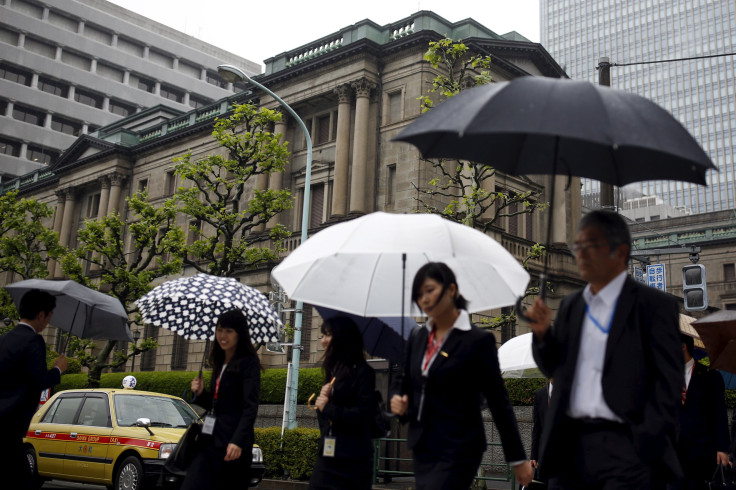Bank Of Japan Holds Fire On Fresh Stimulus; Nikkei Falls, Yen Rallies

Bank of Japan on Thursday held fire on expanding monetary stimulus despite fresh data adding to concerns about the state of the world’s third-largest economy. The BoJ’s policy board voted 8-1 in favor of a continued expansion of its monetary base at an annual pace of 80 trillion yen, and voted 7-2 in favor of leaving its current deposit rate — which is levied on some excess reserves commercial banks park at the central bank — unchanged at -0.1 percent.
The decision to not expand its monetary policy caught investors across Asia off guard, and stock markets in the region, which had earlier risen on expectations of fresh stimulus, broadly dropped. The Nikkei 225 index plunged 3.2 percent in the red following the announcement, paring its earlier gains.
“For now, the BOJ is in a wait-and-see mode to judge the effects of its negative rate policy. Eventually, I think the BOJ will lower the interest rate further into negative territory later this year, perhaps after the July [upper house] election,” Hidenobu Tokuda, a senior economist at the Mizuho Research Institute, told the Guardian.
However, the central bank did unanimously adopt a measure to provide aid to regions in southern Japan devastated by recent earthquakes.
“The specifics of this operation are the following — the total amount of loans is set at 300 billion yen; the Bank will provide loans at a zero interest rate; and twice as much as the amount outstanding of financial institutions' borrowing through this operation will be added to their Macro Add-on Balances, to which a zero interest rate is applied,” the BoJ said in a statement.
Since its last policy meeting in March, Japan has shown little momentum for a recovery from a contraction the economy registered in the final quarter of 2015, when the gross domestic product shrank 0.3 percent. Analysts estimate that the GDP may have shrunk further in the first quarter of 2016.
The central bank now expects Japan’s economy to grow at 1.2 percent in the fiscal year 2016, down from its January forecast of 1.5 percent.
Investor confidence in Japan was not helped by consumer prices data released hours before the BoJ announcement. Official data revealed that consumer prices in the country, including oil prices, fell 0.3 percent in March — a steeper-than-expected decline.
“Oil prices falls and the waning effect from a weak yen pushed down core CPI,” Tokuda told Reuters.
Following Thursday’s announcement, the yen, which had fallen amid expectations of further easing, strengthened. The Japanese currency was trading at 108.92, gaining 2.4 percent against the dollar at 1:42 a.m. EDT.
© Copyright IBTimes 2024. All rights reserved.












